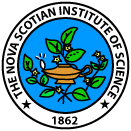
MEETINGS
MEMBERSHIP
PROCEEDINGS
ABSTRACTS
STUDENTS
LIBRARY
EXECUTIVE
BROCHURE
HALL OF FAME
HISTORY
LINKS
Monthly programmes and abstracts of meetings of the NSIS
|
1998–1999 1999–2000 2000–2001 2001–2002 |
2002–2003 2003–2004 2004–2005 2005–2006 |
Speaker List (1998–present)
5 October 1998
Fat: An Ecological Tool
Dr. Sara Iverson, Department of Biology, Dalhousie UniversityAlthough "fat" may at first glance seem like a very simple, uninteresting and even negative thing, in many animal species it may be the single most important component in their life cycle—and it may even provide us with clues as to how some animals make their living in the wild. From providing insights into how fasting grey seal females transfer 23,000 calories in milk per day to their pups, to understanding how dolphins travel so efficiently, to detecting the at-sea foraging behaviour of Antarctic fur seals, fat can be a powerful study tool in understanding animal ecology.
2 November 1998 (Panel Discussion)
Public Funding of Research: Are we investing wisely in the future of our country?
Panelists:
- Dr. Bob Boyd (Acting Director-General of Institute for Marine Biosciences, NRC)
- Dr. Colin Dodds (VP Academic and Research, St. Mary's University).
- Dr. Ross McCurdy (CEO, InNOVAcorp)
- Dr. Michael Steinitz (Department of Physics, St. Francis Xavier University; President, Canadian Association of Physicists.)
7 December 1998
Dinosaurs in Nova Scotia. What happened at the Triassic/Jurassic Boundary?
Bob Grantham, Nova Scotia Museum of Natural HistoryNova Scotia is world famous for a major extinction event that occurred at the Triassic/Jurassic boundary 200 million years ago. Where were we? What was living then? What dinosaurs were around? How important are our dinosaur-age creatures? What are the results of a search for the cause of this extinction-level event?
4 January 1999 (Panel Discussion)
New Strategies in Fisheries Management
Panelists:
- Dr. Jeff Hutchings (Department of Biology, Dalhousie University)
- Dr. Sean Cadigan (Department of History, Dalhousie University)
- Mr. Neil Bellefontaine (Regional Director General, Maritimes Region, Department of Fisheries and Oceans)
- Mr. Brian Giroux (Southwest Nova Mobile Gear Association)
1 February 1999
Antibiotic resistance: Can we win the war against superbugs?
Dr. Leo Vining, Department of Biology, Dalhousie UniversityThe general rule for any antimicrobial agent is "Use it and lose it." Introducing a new antibiotic modifies the environment and inevitably selects for resistant superbugs. What measures can we take to slow the selection process, protect our inventory of useful antibiotics, and counterattack with new ones? Answers to this question emerge from our growing understanding of the role of antibiotics in nature, how they work and how target organisms acquire resistance. Dr. Vining's talk will deal in a general way with recent developments in antibiotic research.
1 March 1999
Storm Waves
Dr. Fred Dobson, Bedford Institute of OceanographyThe wind-driven waves at the surface of the sea have fascinated us ever since the first person encountered the ocean. Their genesis, progress and dissipation are of great interest and so they have been extensively studied: a great deal is known by practical people (seamen, surfers) and theoreticians (physicists, chemists, biologists) alike. They continue to sink ships, wash away coastlines and kill people, and there is much still to be learned before we can say we predict them well enough. This talk will outline the state of our knowledge of storm waves, set straight some common misconceptions (e.g. the existence of "rogue waves"), and show them at full fury in the open sea.
5 April 1999 (General Discussion)
Ethics in Science—Are Scientists Good Citizens?
Discussion Leader: Dr. David Pink, Department of Physics, St. Francis Xavier UniversityEthics in science and technology go well beyond simply "not cheating". For example, do scientists place adequate priority on research questions selected to address matters of social importance? Do scientists consider whether the results of their research (knowledge, products, etc.) will help or harm the environment? Do scientists avoid seeking answers to controversial questions? Do scientists allow their sponsors' interests to affect the direction and the interpretation of their research?
Everyone is welcome to participate in a general discussion of these and other ethical questions. Dr. David Pink from the Department of Physics at St. Francis Xavier University will lead the audience discussion.
3 May 1999 (Annual General Meeting)
The Knowledge-Based Economy—Realizing the Nova Scotia Advantage
Dr. Tom Brzustowski, President, NSERCThe arrival of the Knowledge-Based Economy may be a great opportunity for Nova Scotia. The province rightly prides itself on its many universities, on the large proportion of its population that is well educated, and on its high quality of life. These attributes may add up to a unique advantage for the province in the new global KBE. But in what way? I don't think there is a single way, but there might be a single strategy—the strategy of promoting innovation, of creating new goods and services for the global market, of creating new value-added activity in Nova Scotia. Some of the innovations will originate from intellectual property coming out of discoveries in research in the universities. Other innovations may be the result of people spotting market needs and being the first to meet them. Some of them may be developed by existing companies, others by start-ups, others by multinationals attracted to invest in Nova Scotia, and others still by people networking at the community level. But they all require people who are very competent at what they do, people who are very well informed, people who know markets, others who are entrepreneurs, and others still who can manage a new and growing business line or an entirely new enterprise. And they all require the attitude that Nova Scotia is connected to Canada and the world and "All markets can be our market if we create a great product".
Please report broken links to the webmaster.